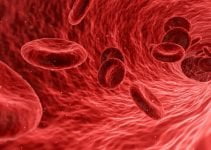
Table of content:
- Introduction
- Knowing more about abortion
- Complications after abortion
- Bloating after abortion
- Self-care after an abortion
- Overcoming bloating and gas
- Red flags after an abortion
Introduction
Self-care after abortion is vital, as in some cases, there may be complications. Severe complications after medical abortion are rare but mild to moderate issue may occur, and some problems may continue for long.
When done by a medical professional, abortion is regarded among the safer medical procedures. Nonetheless, it is worthwhile knowing that some discomfort may happen. Knowing the possible complications may help reduce the risk.
Knowing more about abortion
Medical abortion is done in many ways, and lots will depend on the duration of pregnancy and the health condition of the person.
Thus, the doctor may use abortion pills, vacuum aspiration, dilation and evacuation (D&E). Generally, chances of complications are higher when abortion is done in the second trimester.
Some of the common early discomforts related to the abortion are bleeding for three to six weeks, passing of small blood clots, abdominal bloating and cramps, painful and swollen breast.
In most of the cases, periods should return in a 4 to 8 week, though the first period may differ a bit from usual periods.
Many complications and symptoms are caused by emotional distress related to abortion. Some women may feel grief; others may have a feeling of guilt. These emotional problems or mood swings are made worse by hormonal changes.
Before looking at bloating after abortion, let’s have a look at some of the other symptoms that occur post-abortion.
Complications after abortion
Though severe complications are rare, a possibility remains. Understanding what to expect may help counter many health problems.
Heavy bleeding– is one of the infrequent complications, one of the reasons to worry. It may be challenging to assess when the bleeding is too heavy, as some bleeding is normal after a procedure.
Specialists say that if women need to change more than two pads in an hour, and there are large clots, along with dizziness and lightheadedness, then it could be a sign of heavy bleeding.
Pains, abdominal cramps, bloating, changes in intestinal function are frequent in the early stages. Most pains are caused due to contractions of uterine; it is a way in which uterine controls bleeding. Heavy bleeding occurs when uterine fails to contract adequately and remains in a relaxed state.
Sometimes, bleeding may occur due to incomplete abortion or when some placental tissues remain in the uterus. Heavy bleeding due to injury to the uterus during an abortion is extremely rare but possible [1].
Pain– it is generally moderate. However, severe pain that will not go even after taking analgesic drugs, or pain that intensifies, may indicate that something is wrong. Abdominal pain, severe bloating after few days of abortion may say about infections [2].
Fever– slightly elevated body temperature is acceptable, but if it remains above 100.4 degrees Fahrenheit then it is a cause to worry as it indicates infection.
Continued symptoms of pregnancy– it is not rare for pregnancy-related symptoms to continue much after abortion, the reason is that in some women, hormonal levels need more time to normalize. Thus, many may complain about bloating, breast tenderness, and even nausea.
Bloating after abortion
There are numerous reasons for altered intestinal function, bloating, increased formation of gas, and altered bowel movement in post-abortion phase.
Some of the lower organs like uterus, colon, sigmoid colon, and rectum are innervated by similar kind of nerves like pelvic splanchnic nerve, hypogastric plexus. It means that the irritation of one organ may have an adverse effect on other surrounding organs.
Abortion also means abrupt hormonal changes. Different women react differently to such changes. Bowel changes occur in most women.
Most women are prescribed several medications after an abortion like painkillers, antibiotics, hormonal drugs, in some cases, even medications to improve contraction of the uterus. All this may also influence the working of the bowel.
Finally, one cannot neglect the emotional side of abortion. It is a severe stress for many women. Stress hormones may also cause abdominal bloating and the formation of gases.
Self-care after an abortion
Abdominal pain, cramps, bloating, nausea, are common after abortion. Most women will also feel exhausted. During the early few days, avoid doing physically demanding tasks, avoid psychological stress.
Few days after the abortion, women are at higher risk of getting infected. Thus, there is a need to take some precautions like [3]:
- Using sanitary pads instead of tampons
- Not involving in penetrative sex for a couple of weeks
- Not going to the swimming pool for about two weeks
- Regularly massage your stomach as it may help reduce cramping, bloating, pain, and may improve contraction of uterine
- Applying heat to the back and lower abdomen may also help with abdominal pain
- Take medications like pain relievers, antibiotics as prescribed
- Monitor temperature for the first week as a rise in temperature may say about infection
- Do not miss follow-up appointments as only an experienced specialist can tell if all is fine
In most cases, women will feel close to normal within six weeks, and bleeding will stop, abdominal cramping, bloating, will be gone in most of the cases.
Overcoming bloating and gas:
- Pass stool – bowel movement promotes getting rid of gas
- Avoid smoking and carbonated drinks
- Eliminate problematic foods – like dairy products, garlic and onion, high-fat diet, beans and lentils
- Drink tea– some herbal teas like ginger or peppermint tea can help
- Use activated charcoal
- Take probiotics
- Take over-the-counter medications- there are many medications for bloating they contain an anti-foaming agent called simethicone
Red flags after an abortion
In most cases, abortion clinics will provide a number to call too in case some questions arise, or one feels too bad after an abortion. Here are a few signs that require attention:
- Soaking more than two maxi pads in an hour may say about too much of bleeding
- Passing blood clots larger than a golf ball in size
- Feeling lightheadedness or dizzy
- Extreme depression, feeling of guilt, characterized by thoughts of self-harm
- Difficulty in breathing or signs of other allergic reactions
- Intense pain and painkillers like ibuprofen would not help
- Fever that continues to get worse
- Foul smell from secretions coming out of the vagina
Abortion is a difficult decision for most women, but sometimes it is necessary. Medical abortion is classified among the simple and safe medical procedures, and it does not cause many long-term complications.
Abortion frequently causes acute discomfort like abdominal cramps, bloating, pain, excess of bleeding, chills, and fever. Fortunately, most of these issues are self-limiting and do not require hospitalization.
Physical and emotional discomfort for a few weeks after abortion is normal. However, if symptoms do not subside or become worse with time, then it may point to more severe issues.
References
- Kruse B, Poppema S, Creinin MD, Paul M. Management of side effects and complications in medical abortion. Am J Obstet Gynecol. 2000 Aug 1;183(2, Supplement):S65–75.
- Complications to Watch for After an Abortion [Internet]. Our Bodies Ourselves. 2014 [cited 2019 May 17] [Link]
- Villines Z. After abortion care: Self-care and recovery [Internet]. Medical News Today. 2018 [cited 2019 May 17]. [Link]




 Dr. Preet Pal SB is a physician (M.D. Medicine) with a specialization in diabetes (Fellowship in diabetes, Royal Liverpool Academy). He has a particular interest in metabolic disorders, considering that they are rising in every corner of the world, more so in India.
Dr. Preet Pal SB is a physician (M.D. Medicine) with a specialization in diabetes (Fellowship in diabetes, Royal Liverpool Academy). He has a particular interest in metabolic disorders, considering that they are rising in every corner of the world, more so in India.
Hi am Christy…Please I had an abortion 3 weeks ago and my doctor prescribed leufloxacin antibiotics for me….But I still have abdominal swelling…no cramps and my stomach gives sound most times…please what should I do??? And when should I expect my menstrual period??
Hello Cristy, your period should go back to normal 4-8 weeks after your abortion. And about the swelling, I think it is the best that you check it with your doctor.
I had an abortion 10 days ago and I AM still having symptoms like hiccup, breast tenderness, cramps in the stomach, big headache, gas. what am I going to do?
Your body is adjusting to sudden hormonal changes after abortion. These symptoms usually appear in some females after abortion and can be cured with over-the-counter medications. Consult your OB-GYN for detailed documentation of these symptoms. He/she will give you some medications for a week or two to help you cope with hormonal changes.
Is it possible to still have tender breast after 1 month of abortion..
Yes, it is possible. But if the pain is moderate to severe, you should consult your doctor to rule out other causes of Mastalgia (pain in breast).
Hello … I had an abortion five weeks ago…..but since then am having some brown vaginal discharge and yesterday up to now am experiencing bloating…..what can be the problem?
What type of abortion did you have? Medical or surgical?
Vaginal discharge can occur after an abortion for up to 2-3 months. But its the associated symptoms that matter. Any fever? Cramps? pain?
I would advise consulting a doctor if associated symptoms are present.
Hi. I really like this article and find it very helpful because the others I have checked online are mostly the same. Its been 3 weeks since I did the surgical abortion, i was 8 weeks pregnant. After the abortion the doctor did the ultrasound and some some blood clots, and 4 days later i did an ultrasound as well, he said its blood remains. Anyway I did not bleed, was barely 2 days and brownish later on. I am concerned is it normal to still feel bloating, abdominal pain and nausea. I didn’t do the test yet am terrified if its incomplete. The doctor said it’s not possible that I am still pregnant and the abortion was done back home, not in the country where I live.
Thanks for your time . my question again Is . The possibility of getting pregnant with the condition of gas, movement , sound in my stomach and bloating is it there?
Hi Sally, You can have all of those symptoms and still get pregnant. They are separate from each other.
Thank you so much Daniella Hall
I did an abortion sometime in March of this year. Since then I never rest of gas, movement, sound in my stomach and bloating. My stomach is big each time I eat as if I am pregnant while I am not. I started having several pains in my stomach last week. I went to the hospital for checkup last week. after done some laboratory test and pelvic scan. My Doctor said everything is normal. He prescribed these drugs. Arthrotec 75, 75mg Diclofenac sodium, 200 mcg misoprostol, and folic Acid. My question is how can I get out of this movement and bloating soon?
Hi Sally, the pains you are feeling are the results of the changes in hormones from being pregnant to not pregnant. You could try a few different remedies such as drinking peppermint tea, trying gas drops and making sure to drink a lot of water throughout the day to help get your body to feel better. The hormones will eventually stable themselves out. Since you said the doctor says everything is normal you should be fine and just give it time. If you are still concerned, trust your gut and get a second opinion. Feel better.